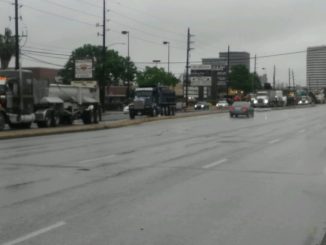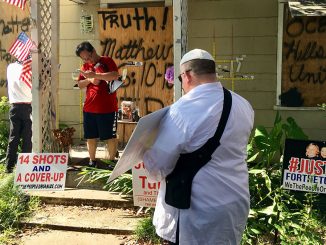
Taxpayer advocate James Noteware today announced that he is bringing a lawsuit against the City of Houston regarding the less-than-forthcoming ballot language for the pension obligation bond item in the most recent election. As noted here before the election, that ballot language appeared to provide the city a way around the voter-imposed property tax revenue cap (despite mayoral staffer Alan Bernstein’s repeated Tourette’s-like exclamations about it being “boilerplate – boilerplate!”).
The press release from Noteware’s legal counsel, Jerad Najvar, is reproduced below.
The Houston Chronicle coverage of the story is available here.
* * *
FOR IMMEDIATE RELEASE
December 18, 2017
Concerned Taxpayer James Noteware Files Election Contest Challenging Proposition A’s Deceptive Ballot Language
Last Friday, December 15, Houston taxpayer James Noteware filed suit in Harris County District Court challenging the validity of the November election as to Proposition A, because the ballot description of the Proposition was materially misleading to Houston taxpayers.
“Prop A asked Houstonians to shoulder another billion-plus dollars in bond debt, but hid from voters the fact that the Proposition gives the City new taxing authority—outside the limitation on the growth of property tax revenue, which voters added to the Charter in 2004—to pay off this debt,” said Noteware.
The suit seeks to void the election and establish that, if the City wants to hold another election on the measure, it must clearly disclose on the ballot that the Proposition would create a billion-dollar exception to the property tax revenue limitation in the Houston Charter.
This is not the first time the City of Houston’s ballot language has been challenged as misleading to voters. In fact, the Texas Supreme Court held in two different cases in 2015 that Houston’s ballot language, first describing 2010’s “Rain Tax” measure, and then regarding the referendum on the “Equal Rights Ordinance” (ERO), was materially misleading. The ERO referendum election was subsequently held in November 2015, with language corrected as directed by the Supreme Court. The 2010 Rain Tax election has been declared void, with the lower court presently in the process of scheduling a new election.
Noteware is represented by Jerad Najvar, a Houston attorney specializing in election and constitutional law. “The City Charter has a limitation on the annual growth of property tax revenue. So when voters go to the booth, even if they’re voting on a new bond, they quite reasonably can expect that any additional burden on their pocketbooks will be mitigated by the Charter’s limitation on annual property tax rate increases, unless they are told otherwise,” said Najvar. “But if the vote will create an exception to the property tax cap, as Prop A does, then that is a material fiscal burden on the taxpayers and, just as the Supreme Court said in the Rain Tax case, such fiscal burdens must be disclosed directly on the ballot.”
The case is Noteware v. Turner, No. 2017-83251. It has been assigned to the 269th District Court; however, the Election Code requires that a special judge from outside Harris, Fort Bend or Montgomery County be assigned to preside in the case.




